
Dame Julia Mary Walters, known professionally as Julie Walters, is an English actress. She is the recipient of four British Academy Television Awards, two British Academy Film Awards, two International Emmy Awards, a Golden Globe Award, and an Olivier Award.
The Social Gospel is a social movement within Protestantism that aims to apply Christian ethics to social problems, especially issues of social justice such as economic inequality, poverty, alcoholism, crime, racial tensions, slums, unclean environment, child labor, lack of unionization, poor schools, and the dangers of war. It was most prominent in the early 20th-century United States and Canada. Theologically, advocates of the movement sought to put into practice the Lord's Prayer : "Thy kingdom come, Thy will be done on earth as it is in heaven". They typically were postmillennialist; that is, they believed the Second Coming could not happen until humankind rid itself of social evils by human effort. The Social Gospel was more popular among clergy than laity. Its leaders were predominantly associated with the liberal wing of the progressive movement and most were theologically liberal, although a few were also conservative when it came to their views on social issues. Important leaders included Richard T. Ely, Josiah Strong, Washington Gladden, and Walter Rauschenbusch.
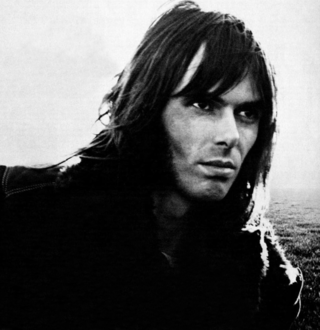
Nicholas Christian Hopkins was an English pianist and organist. He performed on many popular and enduring British and American rock music recordings from the 1960s to the 1990s, most notably on songs recorded by the Rolling Stones, the Kinks, the Who, the Beatles, the Steve Miller Band, Jefferson Airplane, Rod Stewart, George Harrison, John Lennon, Paul McCartney, Ringo Starr, The Hollies, Cat Stevens, Carly Simon, Harry Nilsson, Joe Walsh, Peter Frampton, Jerry Garcia, Jeff Beck, Joe Cocker, Art Garfunkel, Badfinger, Graham Parker, Gary Moore, Quicksilver Messenger Service and Donovan. He is widely considered to be one of the greatest studio pianists in the history of popular rock music.
Ronald Gow was an English dramatist, best known for Love on the Dole (1934).
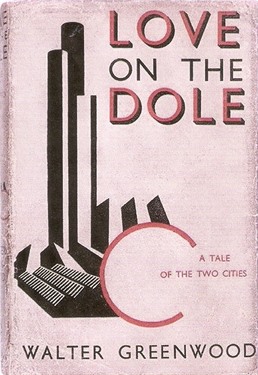
Love on the Dole is a novel by Walter Greenwood, about working-class poverty in 1930s Northern England. It has been made into both a play and a film.
Walter Greenwood was an English novelist, best known for the socially influential novel Love on the Dole (1933).

Come and Get It is a 1936 American lumberjack drama film directed by Howard Hawks and William Wyler. The screenplay by Jane Murfin and Jules Furthman is based on the 1935 novel of the same title by Edna Ferber.

Love on the Dole is a 1941 British drama film starring Deborah Kerr and Clifford Evans. It was adapted from the novel of the same name by Walter Greenwood. It was the first English-made feature film to show English police wielding batons against a crowd.
Love on the Dole is a 1933 novel by Walter Greenwood, adapted into a play by Ronald Gow.

Ruth Dunning, born Mary Ruth Dunning, was a Welsh actress of stage, television, and film. Although her year of birth was long given as 1911, her birth was registered in Holywell in 1909.
Greenpark Productions Ltd is a British documentary film production company, founded by Walter Greenwood in Polperro, Cornwall in 1938. The company relocated to London in 1939. After the war it expanded into making upmarket corporate films. Amongst its roster of directors were Ken Annakin, Ralph Keene and Humphrey Swingler, brother of the poet Randall Swingler.
James Vincent Morris is an English playwright associated with social realism.
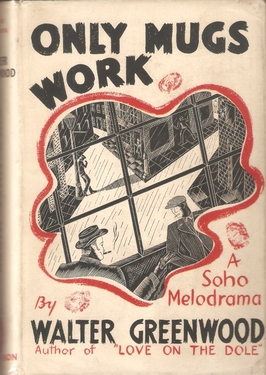
Only Mugs Work is a 1938 melodromatic crime novel by the British writer Walter Greenwood. Greenwood had established his reputation in 1933 with Love on the Dole, set in a district closely modelled on working-class Salford. In this case the setting is shifted to London's Soho, but features a similar blend of realism and drama. It is set amongst the spivs of the capital city. It was one of a number of novels that focused on the activities of the London underworld in the late 1930s including There Ain't No Justice, The House in Greek Street and Night and the City.
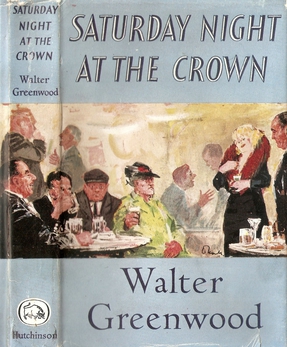
Saturday Night at the Crown is a 1959 novel by the British writer Walter Greenwood. It was his final novel, inspired by his 1954 play of the same title. The play had premiered in Morecambe in 1954 before running for 234 performances at the Garrick Theatre in London's West End from 1957 to 1958. He dedicated to the novel to Thora Hird who had starred in the play.
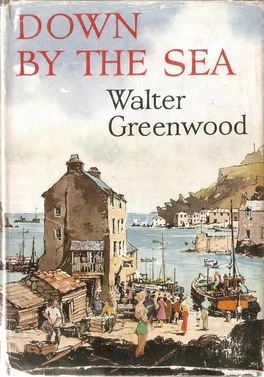
Down by the Sea is a 1956 novel by the British writer Walter Greenwood. It is the final entry of a trilogy set in the fictional fishing port of Treeloe in Cornwall. Durrall, the principal protagonist of the previous novel marries a woman and is able to prosper by opening his cottage as a tea house for tourists.
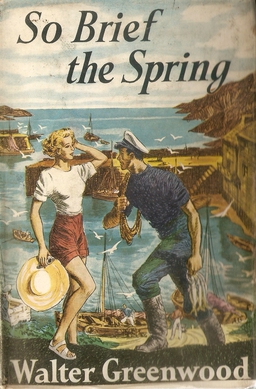
So Brief the Spring is a 1952 novel by the British writer Walter Greenwood. It is the first in the author's trilogy set in the fictional fishing port of Treeloe in Cornwall. It was developed out of a play which Greenwood had written in 1945. The novel is dedicated to Robert Newton who appeared in the play. It focuses on Randy Jollifer, formerly of the Royal Navy, attempting to settle down to postwar life in his home town. The book and its sequels sold steadily, without enjoying the spectacular popularity of his best-known work Love on the Dole.

What Everybody Wants is a 1954 novel by the British writer Walter Greenwood. It is the second of a trilogy set in the fictional fishing port of Treeloe in Cornwall during the postwar years. While the principal character of the first novel Randy Jollifer reappears, there is a shift to focus on the life of Darky Durrant. Durrant is a local poacher of gypsy heritage who, despite a distinguished war record as a commando, lives on the margins of society.

The Secret Kingdom is a 1938 novel by the British writer Walter Greenwood. Like his best-known novel Love on the Dole it is set in Salford. It portrays the working-class socialist Byron family, and particularly the eldest daughter Paula who tries to establish an independent identity after finding working a parlour maid. She encounters Bert Treville in nearby Manchester and the two begin a courtship. After his death due to heavy drinking, she brings up her son Lance as a single-mother, throwing her effort into her talented child she is vindicated when he emerges as a talented concert pianist - performing on national radio in the final scene.
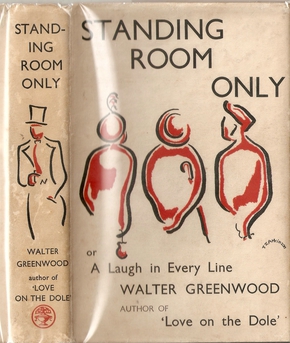
Standing Room Only is a 1936 comedy novel by the British writer Walter Greenwood. It was his third novel. Like his previous two, including his bestselling debut Love on the Dole, the work is partly set in his native Salford. The novel was somewhat self-reflexive as the protagonist Henry Ormerod strongly resembles Greenwood's own background and experiences. It was not as critically well-received as his two previous novels.

Something in My Heart is a 1944 novel by the British writer Walter Greenwood. It is a loose sequel to his debut and best-known novel Love on the Dole, a 1933 work set in Salford at the height of the Great Depression. This book presented a more optimistic view of a potential postwar future that was absent in the despair in the original novel.














